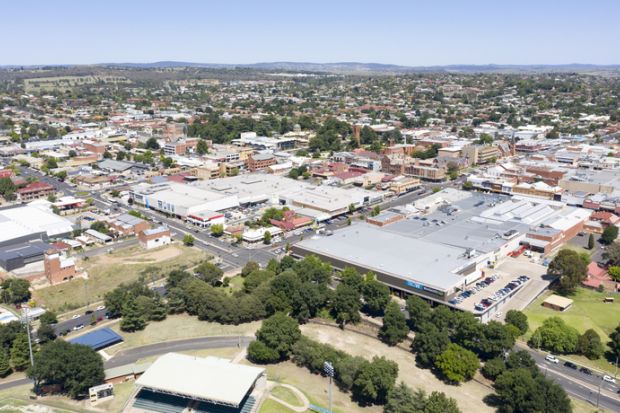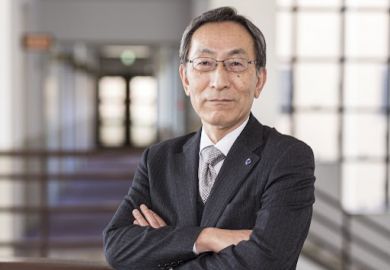The vice-chancellor of Australia’s largest regional university has announced his retirement, a year before his term was due to end and six months after he began a sabbatical amid a pandemic.
Andrew Vann, head of New South Wales multi-campus institution Charles Sturt University (CSU), said that “after a period of reflection during sabbatical, I believe it is the right time to move on to the next phase of my life”.
Professor Vann said it had been “an honour and a privilege” to lead CSU, but that 2020 had been “a very disruptive year for everyone”.
Chancellor Michele Allan said Professor Vann had “led the university through a period of incredible growth, and through some challenging times”.
Under Professor Vann’s nine-year tenure, CSU boosted its enrolments by 14 per cent and its revenue by 43 per cent. When it joined the Regional Universities Network last year it significantly elevated the group’s firepower, contributing 61 per cent more students and 27 per cent more turnover than the next biggest member.
But CSU also experienced financial and regulatory difficulties. After recording reasonably healthy surpluses of A$23 million to A$39 million (£13 million to £22 million) for most of the decade, it produced a razor-thin operating margin of less than A$1 million in 2018 – although this recovered somewhat to A$4.7 million last year.
CSU also attracted sanctions from the higher education regulator, Teqsa, over governance of its city campuses. Last year Teqsa banned the university from accepting new students at its Sydney, Melbourne and Brisbane campuses – although the ban was revoked a month later – and reregistered it for just four years instead of the customary seven.
CSU has also endured a battle with federal MP Andrew Gee over the health and transparency of its finances. Mr Gee, whose rural electorate includes two CSU campuses, is also minister for regional education.
Last month, Teqsa revealed that it was investigating CSU following a referral from the education minister regarding the university’s financial status. The university had refused to give Mr Gee a copy of an independent audit report, after appearing to have committed to do so, saying the report had been deemed commercially confidential by the university council.
Professor Vann also spearheaded an unsuccessful attempt to negotiate an accord with the academic union aimed at averting mass Covid-induced job losses by securing staff’s agreement to relatively modest temporary cuts to their pay and conditions.
The effort unravelled in May when both staff and administrators at many universities – including CSU – refused to sign up to the deal.
In mid-June, CSU announced that Professor Vann had taken six months of sabbatical and leave, under arrangements approved before the Covid outbreak. At the time, acting vice-chancellor John Germov said Professor Vann’s sabbatical would focus on “indigenous higher education futures” and compare Australian governance and knowledge management structures with those in other countries.
Times Higher Education asked whether the research findings would be published, or whether the university intended to make use of them in some way. A CSU spokesman declined to comment.
Professor Vann’s term was due to end in December 2021. CSU says it began recruiting a replacement in February this year. Professor Germov remains acting vice-chancellor while the recruitment process continues.




